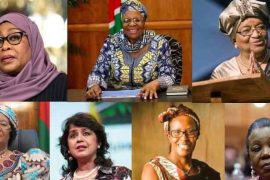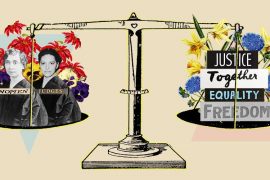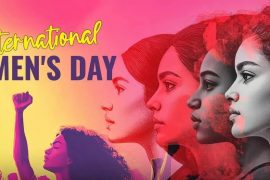Ensuring that women become financially empowered and independent has been described as one way of boosting their confidence and thus enabling them to compete with their male counterparts for leadership positions. The sentiments were shared by the Assistant Minister of Local Government and Rural Development, Botswana, Ms. Botlogile Tshireletso on February 9 at a roundtable on empowering women and local institutions to lead. The roundtable was hosted by the embassy of the United States of America.
Ms. Tshireletso said the Department of Gender Affairs was one vehicle through which empowerment and financial independence of women could be achieved as the department had sanctioned programmes dedicated to uplifting the lives of women by encouraging women to take the lead in various sectors including business ownership and sustainability. The assistant minister, who is also MP for Mahalapye East – Botswana, said one other achievement aimed at empowering women was the development of the National Policy on Gender and Development, explaining that the policy addressed various forms of existing gender inequalities thereby allowing women equal chances of assuming leadership positions as men.
The low numbers of women representation in Parliament and in bogosi, Ms. Tshireletso said was proof that there was an urgent need for thorough gender mainstreaming with the aim to advance women and girls, and in the process reverse the deeply and long-entrenched inequalities emanating from patriarchal systems and discriminatory cultural practices that did not recognize women leaders.
Furthermore, she observes that a strong emphasis on local institutions and direct community involvement was just as important as women empowerment to encourage people to take the lead on decisions that directly affected their lives. “It is also a known reality that a significant proportion of the population live in the rural areas where poverty is severe. Thus, one of the goals of rural development is to address the problem of poverty in the rural areas by promoting participation of people through local structures and engagement of other participating organizations,” she said. On a positive note, Ms. Tshireletso applauded the strong partnership with the United States government through United States Agency for International Development (USAID), saying the collaboration had resulted in significant achievements at a community level through the provision of health, psycho-social support as well as education to empower communities. Assistant Minister of Health and Wellness Mr. Dikgang Makgalemele said there were many structures at the community level which could be tapped into in order to realize Botswana’s development agenda. He said structures such as Village Development Committees, Parent-Teacher Associations needed not be taken for granted as they played a critical role in communities.
Mr. Makgalemele, who is Shoshong MP, however, decried the support for NGOs which he said had dwindled over the years. He thus said it was important to devise new ways through which NGOs could be assisted so they could continue to play the important role that they had been playing. Speaking on behalf of the US ambassador, an embassy official Mr. Timothy Smith also spoke highly of the collaboration between the Botswana and US governments, attributing achievements in many sectors to the cordial relationship. He said the partnership spanning decades, in particular through USAID, had helped Botswana to achieve many of her development goals. On Botswana’ success rate on efforts to empower women to assume leadership positions, he said the country had made significant progress over the years as it was presently leading in the SADC region with 43 percent of executive government positions being held by women. Mr. Timothy also spoke of the key role that community leaders played, saying they were well-poised to address the challenges unique to their neighborhoods and communities. He also highlighted the importance of community engagement, describing it as a hallmark of the effort between USAID and local institutions in Botswana to deliver sustainable and effective development solutions.
KgosiMosadiSeboko of Balete, who also participated at the meeting, spoke of the need to address the gender inequalities currently existing in local communities. Such, she pointed out, could only be achieved through close collaboration by all stakeholders. Underlining the need to address the gender inequalities, KgosiMosadi said it was also critical that gender is mainstreamed into the customary court system, this being in appreciation of the all-encompassing role of traditional leaders, especially with regard to their responsibility to promote and protect the welfare of their communities. In the end, the participants observed that in order for the efforts to empower women to take up leadership positions there was a need for among others, people-centered solutions, change of mindset, effective monitoring of initiatives as well as the need to strengthen the family unit.
Source: DailyNewsbw




